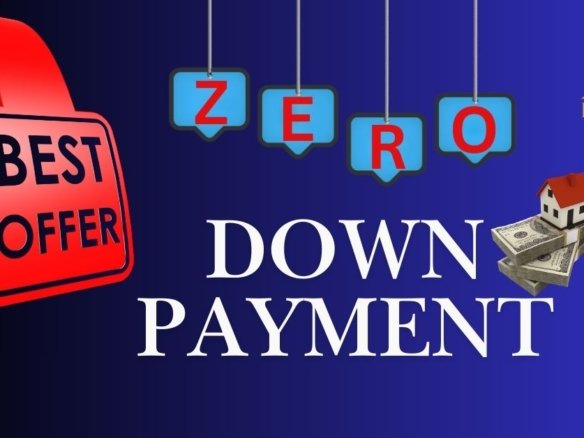The Short Answer: Hurghada’s installment plans can make property ownership seem deceptively easy, but hidden pitfalls like sky high hidden fees, unstable exchange rates, and weak contract clauses can cost you thousands. The key is to scrutinize the Final Overall Price, lock in your currency rate, and ensure every promise is in writing to protect your investment. The 2025 Guide to Hurghada Installment Plans: Avoid These 5 Costly Pitfalls
The dream of owning a sun drenched apartment in Hurghada is more accessible than ever. Thanks to a booming real estate market and developer normal payment structures, the path to your Red Sea retreat isn’t limited to cash buyers. Installment plans are the golden key, allowing you to secure a property with a down payment and pay the rest over months or years.
But here’s the reality many discover too late: not all payment plans are created equal theres some different . What looks like an attractive deal on a glossy brochure can quickly turn into a financial maze of hidden costs and risky clauses. This guide isn’t just about finding a plan; it’s about securing a smart, safe investment in Hurghada and avoiding the mistakes that could cost you your dream property.

Why Your Installment Plan Choice Matters More Than the Property Price
It might sound dramatic, but the fine print of your payment schedule can have a greater impact on your financial good being than the property’s sticker price. A well structured plan is a powerful tool that improves cash flow and makes investment possible. A poorly structured one is a trap that can lead to:
- Unexpected financial strain from hidden fees.
- Losing your property and all invested payments due to a default.
- Paying far more than the market value over the long run.
Understanding the common pitfalls is your first and most important step toward a successful purchase.
Pitfall 1: The Illusion of the “Low Down Payment”, The 2025 Guide to Hurghada Installment Plans: Avoid These 5 Costly Pitfalls
The Trap: A developer advertises a seemingly impossible deal: “Own a Hurghada apartment with just a 5% down payment!” This is designed to grab attention and generate quick sales. The catch? The remaining 95% is spread over an aggressively short period, leading to massive monthly installments that are often unsustainable.
Why It’s Costly: This structure is designed for speed, not for your financial stability. If you miss one of these large payments, you could be in breach of contract, risking penalties or even the cancellation of the contract and the loss of all money paid.
How to Avoid It:
- Look for a balanced down payment. A standard, healthier range is 10-20%.
- Calculate the monthly payments for the entire duration before you sign. Ensure they are comfortably within your budget, accounting for potential interest rate rises or personal financial changes.
- Prioritize the payment schedule over the initial down payment percentage. A longer plan with a slightly higher down payment is almost always safer.
Pitfall 2: Ignoring the Final Overall Price
The Trap: You’re focused on the monthly number, but you’re not looking at the total cost of the property under the installment plan. Developers often incorporate fees, administrative costs, and even a premium into the overall price for the convenience of paying over time. You might be paying significantly more than the cash price.
Why It’s Costly: You could end up paying a 20%, 30%, or even higher premium on the property’s value without realizing it. This destroys your equity from day one and makes it harder to sell the property for a profit later without taking a loss.
How to Avoid It:
- Always ask: What is the cash price? This is your baseline for the property’s true market value.
- Calculate the total sum of all your installments plus the down payment. Compare this final figure to the cash price.
- Negotiate. Understand that the premium for the installment plan is often negotiable, especially if you can offer a larger down payment.
Pitfall 3: Vague Contract Clauses and “Verbal Promises”
The Trap: The sales agent makes glowing promises about guaranteed rental yields, completion dates, or furniture packages. You sign a contract that is vague on these details but extremely detailed on the penalties you must pay if you miss an installment. The verbal promises are never fulfilled, and you have no legal recourse.
Why It’s Costly: A contract that isn’t explicitly in your favor is a liability. Without clear clauses on what the developer is obligated to deliver and by when, you bear all the risk.
How to Avoid It:
- Get everything in writing. If it’s not in the contract, it doesn’t exist.
- Hire a local lawyer. An independent real estate lawyer in Egypt is non-negotiable. Their job is to review the contract and ensure it protects you, including clauses for:
- A clear completion date with penalties for the developer if they delay.
- Detailed specifications of finishes, materials, and appliances.
- The handover process and what happens if there are defects.
Pitfall 4: The Currency Exchange Ambush
The Trap: You’re a foreign investor and the contract is priced in Egyptian Pounds (EGP), but you earn in Euros, Dollars, or Pounds Sterling. You agree to a plan based on today’s exchange rate. However, if the Egyptian pound fluctuates against your currency, your effective monthly payment could skyrocket, making it unaffordable.
Why It’s Costly: Currency markets can be volatile. A significant devaluation or shift in the EGP could increase the cost of your installments by thousands in your home currency, derailing your budget completely.
How to Avoid It:
- Lock in the rate. The best option is to negotiate a contract priced in your home currency. This transfers the exchange rate risk to the developer.
- Pre-pay as much as possible. If pricing in EGP is unavoidable, consider making larger upfront payments to minimize your exposure to future currency risk.
- Use a currency specialist. If you must pay in EGP, plan your transfers with a foreign exchange company that can offer forward contracts to lock in a rate for future payments.
Pitfall 5: The Missing Link to Delivery Milestones
The Trap: Your payment plan is a rigid calendar-based schedule (e.g., “Pay 10% every 6 months”) that is completely disconnected from the actual construction progress of the project. You could be making 80% of the payments while the project is only 20% complete, leaving you with little leverage if the developer delays or abandons the project.
Why It’s Costly: This puts all the financial risk on you. If the developer fails to deliver, getting your money back can be a long, difficult legal battle.
How to Avoid It:
- Demand a milestone-based payment plan. Your installments should be directly tied to the developer’s progress. Standard milestones include:
- Payment upon signing contract.
- Payment upon completion of foundation.
- Payment upon completion of structure.
- Payment upon roofing.
- Payment upon handing over the unit.
This protects both parties. You only pay for what has been built, and the developer has a consistent cash flow to fund the construction.
Smart Plan vs. Risky Plan: A Quick Comparison
Your Action Plan for a Secure Investment, The 2025 Guide to Hurghada Installment Plans: Avoid These 5 Costly Pitfalls
- Get Professional Help: Hire an independent English speaking lawyer. The fee is a tiny percentage of the property value and your best insurance policy.
- Ask the Right Questions: Don’t be shy. Ask for the cash price, the total installment price, and the completion date guarantee.
- Read Every Line: Understand every clause in the contract before initialing any page. Your lawyer will guide you.
- Plan for the Worst: Ensure the contract has a clear, fair exit clause should something in your life change.
Investing in Hurghada property through an installment plan can be one of the best decisions you ever make if you navigate it with your eyes wide open. By avoiding these five costly pitfalls, you’re not just buying a property; you’re securing a valuable asset and the peace of mind to truly enjoy it.



